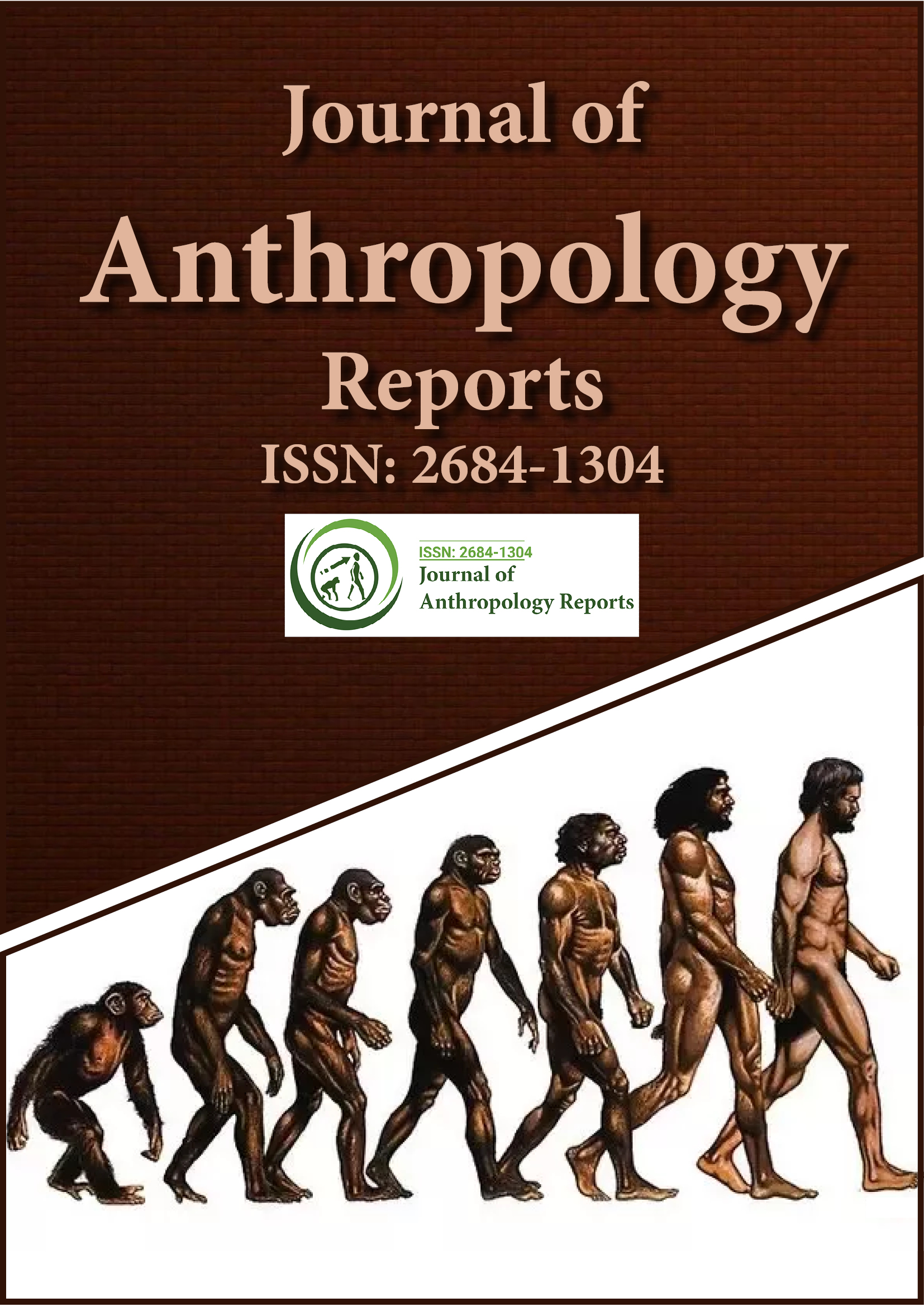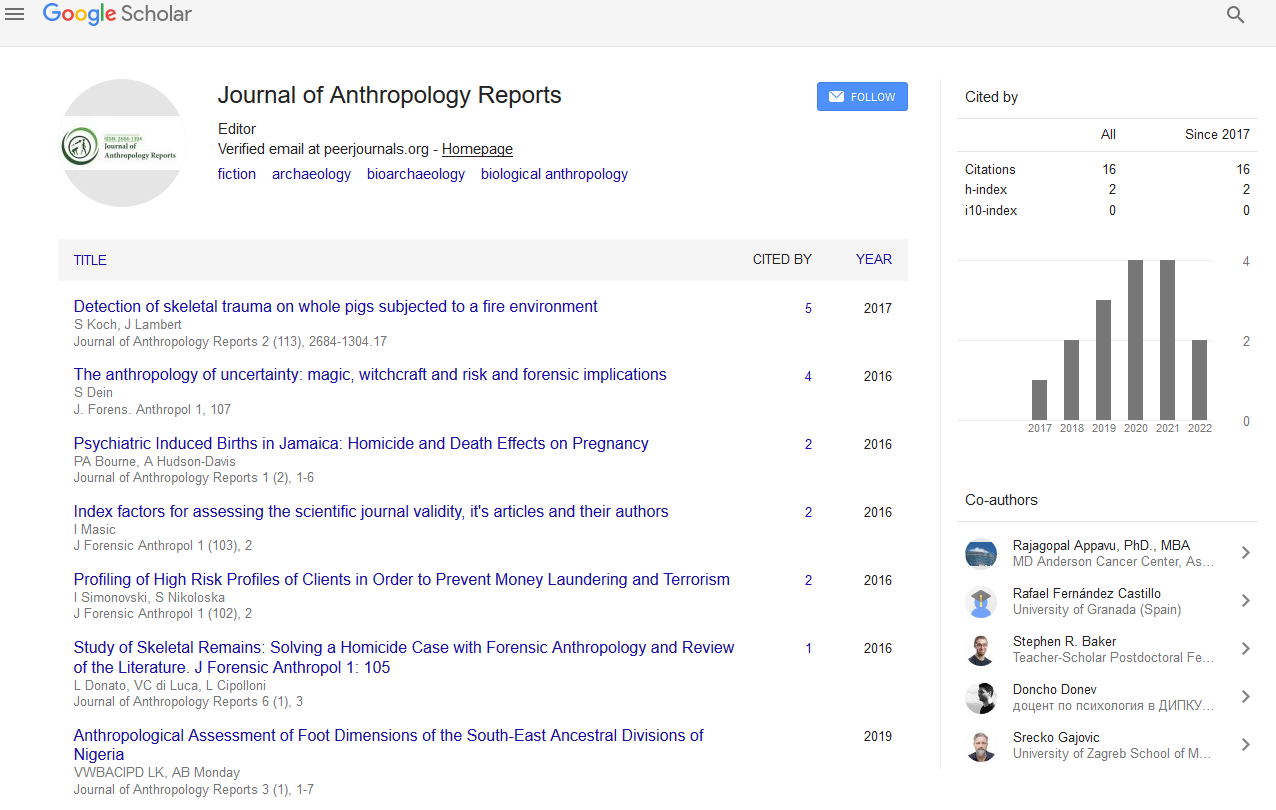Indexed In
- RefSeek
- Hamdard University
- EBSCO A-Z
Useful Links
Share This Page
Journal Flyer

Open Access Journals
- Agri and Aquaculture
- Biochemistry
- Bioinformatics & Systems Biology
- Business & Management
- Chemistry
- Clinical Sciences
- Engineering
- Food & Nutrition
- General Science
- Genetics & Molecular Biology
- Immunology & Microbiology
- Medical Sciences
- Neuroscience & Psychology
- Nursing & Health Care
- Pharmaceutical Sciences
Opinion Article - (2022) Volume 5, Issue 5
Psychological Addiction on Adolescence over Internet Associated Activities
Luo Knapp*Received: 22-Aug-2022, Manuscript No. JFA-22-18361; Editor assigned: 24-Aug-2022, Pre QC No. JFA-22-18361 (PQ); Reviewed: 07-Sep-2022, QC No. JFA-22-18361; Revised: 15-Sep-2022, Manuscript No. JFA-22-18361 (R); Published: 22-Sep-2022, DOI: 10.35248/2684-1304.22.5.139
Description
The development of personalities as well as significant physical and psychological changes occurs during adolescence. Young people are drawn to new technology as a way to expand their social networks and discover a "whole new universe," and they play a critical role in this process claimed that four factors applications, emotions, cognition, and life events have an impact on student’s use of social media. Applications have a big impact on social media users because internet addicts frequently become focused on a certain application that serves as a catalyst for binge-use of the internet. Emotions can make maladaptive internet use worse since the emotional pleasure that comes from addictive behaviour tends to make them more intense.
Behaviours that lead to internet addiction
Excitation, euphoria and joy typically promote behaviours that lead to internet addiction. Online feelings are stronger for internet addicts than they are offline, and negative sensations get worse the longer a patient is away from the internet. As a result, checking alerts on a phone triggers an automatic response. Young people typically exhibit an emotional dependence on their mobile devices due to the engaging nature of social media, and many feel anxiety about being away from them. Many sufferers are motivated to use the internet because it provides them with respite. The use of social media may be impacted by cognition as well. When they foresee calamity or bad luck, those whose thinking is affected by addiction will suffer unreasonable feelings of anxiety. According to this kind of pessimistic thinking can result in compulsive internet use, which serves as a psychological escape mechanism from actual or perceived problems. In addition, people may use the internet offensively due to circumstances in their lives. People are more prone to addiction when they lack optimism, intimacy or strong relationships with others, self-confidence or engaging activities, or feel unsatisfied with their lives.
Similar to this, people who are unhappy with one or more parts of their lives are more likely to develop an internet addiction when they run out of other options for coping. Studies unmistakably show a high correlation between disordered internet use and a number of behavioural and psychological issues. Internet addiction is defined as the excessive use of the internet that harms a person's personal relationships, psychological health, and social functioning as well as their ability to perform well at work and learn new things. Numerous studies have made use of this idea. Internet abuse and uncontrolled behaviour have been labelled as internet addiction in recent studies. After observing strange symptoms in who used the internet excessively. In contrast to stimulant addiction claimed that internet addiction may be classified as an "Impulse Control Disorder." The majority of people who are addicted to the internet have struggled with a lack of communication skills and emotional skills related to emotional intelligence. Internet addiction is also defined as a psychological addiction characterised by an increasing dependence on Internet-related activities, unpleasant feelings when offline, and frequent anticipation of Internet use. Online safety concerns and sleep patterns are just two daily activities that are negatively impacted by internet addiction. Students that are addicted to the Internet pay less attention to their classes, which results in more surface learning and less deep learning.
Citation: Knapp l (2022) Psychological Addiction on Adolescence over Internet Associated Activities. J Anthropology Rep. 5:139.
Copyright: 2022 Knapp l. This is an open-access article distributed under the terms of the Creative Commons Attribution License, which permits unrestricted use, distribution, and reproduction in any medium, provided the original author and source are credited.

